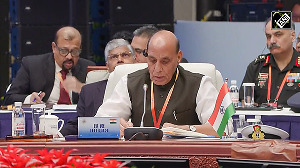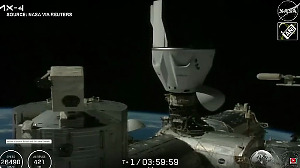The group, according to one media interview, had had discussions with around 50 Indian business houses, including Bharti Enterprises, Reliance Industries, AV Birla Group and Wadia Group. The French retail chain also appointed three designated heads to find a partner and begin operations in India at the same time.
In fact, almost a year ago, commerce and industry minister Kamal Nath had informed the international media that Carrefour was close to announcing a partnership with the Wadia group. However, no such deal has happened as yet.
"It is important for any retailer to carefully study the local market before deciding to enter a new country," said Herve Clech, managing director, Carrefour India.
Carrefour appointed Jean-Christophe Goarin as its first designated CEO in 2002 to start retail operations in India. After two years of market evaluation, Carrefour dropped its India plan and Jean moved out of the retail firm to set up GOA Consulting, a retail and consumer consultancy firm in Delhi.
"Management control and stake increase - when FDI regulations permit - are the two major issues for international retailers while negotiating with potential partners," said Goarin, managing director of GOA Consulting and ex-India head for Carrefour.
Indian business houses, which have fostered a long-term retail ambition, are not ready to bargain on the management control. That is why AV Birla Group chose not to partner any foreign retailer and preferred to build the business on its own.
Carrefour rekindled its India retail plan recently and appointed Gerard Freiszmuth to look for a partner in India. The company has now formed Carrefour WC&C India and Carrefour India Master Franchise Company to begin both Cash & Carry and front-end retailing in India. It has also appointed Herve Clech as the managing director for both companies.
Gerard remains a part of the core management team that the company has built by now. However, the company is still noncommittal on the Indian partner. "We still haven't zeroed in on a partner. Negotiations are still in progress," said the company.
Now, Carrefour has found partnership prospects in real estate players, who do not have direct experience of retailing with Indian consumers, as they are more flexible in negotiations. Besides, such a partner would be capable of providing real estate space at a fair value - a great help considering the prohibitive realty prices in urban India.
The company has been in discussion with Delhi-based real estate players DLF and Parsvnath Developers for a franchise partnership for front-end retailing over the last couple of months. Parsvnath is believed to have emerged as the stronger option for Carrefour. The company can go on its own for the Cash & Carry model.
"Franchise is the best option. Today, a franchise can operate the company and when FDI is allowed, foreign retailers can increase their stake," Parsvnath chairman Pradeep Jain said, explaining the business model under discussion.
While Carrefour has remained in the news despite its failed talks, British supermarket chain Tesco Plc seems to have become a laggard since its talk with Bharti failed almost a year-and-half ago.
"India is an interesting market and offers huge potential," said a Tesco spokesperson in an email response. "We continue to research the market and are engaging in discussions with potential partners," the email said.
India is a critical market for these foreign retailers as growth slows in their home turfs. According to the International Monetary Fund (IMF), India's economy is likely to grow by 7.9 per cent. The Eurozone is projected to grow at 1.4 per cent and growth in the US is estimated to be almost flat at 0.5 per cent.
Investors in these companies are wondering if the delay in the Indian rollout is going to cost them a premium as Indian retailers grab prime retail space and build customer loyalty.
"Bharti Wal-Mart will not lose the competitive advantage even if they take one more year to start their operations," said Arvind Singhal, chairman of Technopak. "They have been putting more effort in building the supply chain," he added.
Where Wal-Mart went wrong





